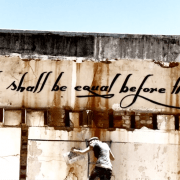|
Getting your Trinity Audio player ready...
|
The results of the final report of the Arms Procurement Commission have been revealed – there was no evidence of corruption or wrongdoing during the controversial bidding process for South Africa’s arms procurement deal.
After four years and over a million rands of taxpayers’ money spent, the Seriti Commission, as it was formally known, submitted its final report just before the end of 2015. The deadline for the report’s submission was 31 December 2015, and the commission filed the three-volume document on the 30th.
Addressing the nation today, President Jacob Zuma has affirmed what many suspected – the commission was unable, or unwilling, to find a shred of evidence of either improper monies paid to government officials via so-called consultants, or improper influence in the procurement process. Witnesses included government officials involved, such as former president Thabo Mbeki, as well as vehement critics of the deal, including Richard Young and Terry Crawford-Browne, who were unable to prove their case for corruption to the commission’s satisfaction.
“The widespread allegations of bribery‚ corruption and fraud … especially in relation to the selection of the preferred bidders and cost‚ have found no support in the evidence‚ oral or documentary‚ placed before the commission,” said Zuma.
Far from draining the country of money needed for development, the arms deal created 11 000 jobs, Zuma said, if not more.
Members of the inter-ministerial committee that oversaw the procurement process refuted allegations that they may have been bribed, said the president.
The inquiry also delved into the issue of under-utilisation of the multi-billion-rand military equipment. Here, too, the commission found that all equipment is well utilised.
Not all are convinced.
“The process was compromised from the start, a situation that had shown itself in the manner in which Lawyers for Human Rights withdrew,” said Corruption Watch’s legal head Leanne Govindsamy. “Certain documents they needed were not being made available, and others were not allowed to be brought before the commission. Although they wanted to participate they decided not to.”
The organisation is not surprised by the findings, which point to a deeply compromised process, Govindsamy said. “We are disappointed, but not surprised. We did expect a little more, though – some sort of accountability even if only on the part of companies involved, a number of which have been investigated across the world. But there was no real engagement with the issues at hand because the commission seemed to admit only those documents that would support the findings that it has, in fact, made.”
The findings have also shown just how far South African citizens and civil society still have to go in terms of successfully holding government to account, said Govindsamy – and that is exactly what Corruption Watch plans to keep on doing.
Low expectations
At the start hopes were high that together, the witnesses would finally prove their long-standing allegations of corruption into South Africa’s controversial and pricey arms procurement deal. Those initial high hopes were slowly eroded over the period of the commission’s existence, especially during the two-year hearings phase which started in August 2013.
Accusations of unfair treatment and lack of commitment on the commission’s part eventually led to the withdrawal of prominent arms deal critics Andrew Feinstein, Paul Holden and Hennie van Vuuren, who had supported the commission up till then and were hoping to finally present a convincing case. The three were represented by Lawyers for Human Rights.
“Mounting concerns at the commission’s deeply flawed process leave little hope that the commission will get to the bottom of widespread allegations of corruption in the arms deal,” said the Right2Know Campaign’s spokesperson, Busi Mtabane in the weeks before the results were made known
Millions in salaries
The commission cost over R113-million of taxpayers’ money. A November 2015 report in Sowetan revealed that of this, R73-million was paid to evidence leaders, among them Advocate Simon Lebala, who reportedly earned R12.3-million while the commission was active. Several others earned millions, including Tshepo Sibeko, Matshego Ramagaga, Tayob Aboobaker and Phumlani Ngobese.
Zuma thanked the evidence leaders and all those on the commission team, for the “professional, efficient and effective manner” in which they conducted the commission.
Speaking to Afrikaans newspaper Beeld, arms deal critic Hennie van Vuuren said the commission was a waste of money. “I find it shocking that a handful of people became rich as a result of the commission but that it achieved nothing in terms of establishing the amount of corruption that went on during the arms acquisition,” he said.
The paper also quoted him as saying that in his opinion, the way the commission went about its business has ensured South Africans now know even less about corruption in the arms deal because much of the evidence to be provided by key witnesses was simply blocked.







